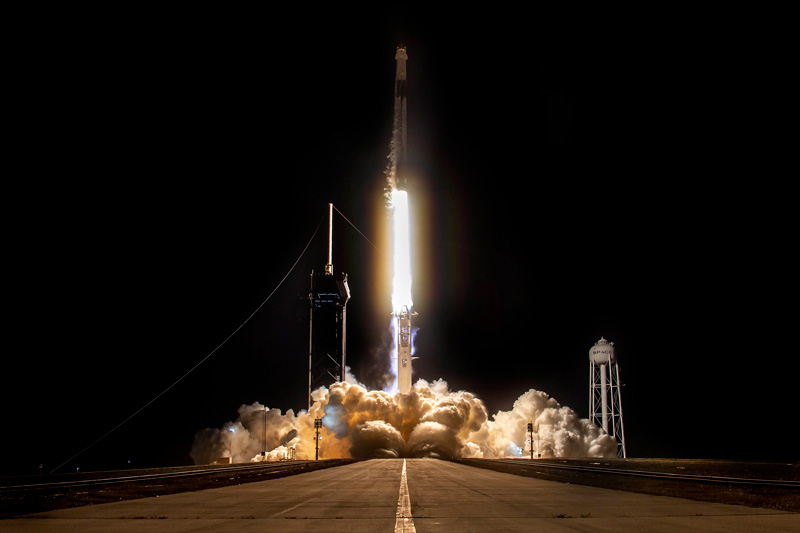In 2021, geoscientist, explorer, and community college professor Sian Proctor became the first Black woman to pilot a spacecraft as part of the SpaceX Inspiration4 all-civilian crew.
As a child growing up throughout the northeastern United States, Proctor wondered what created the landscapes around her while also dreaming of flying F-16s and going to space. Though her need for glasses thwarted her fighter pilot ambitions, Proctor’s parents—neither of whom had college degrees—instilled in her the idea that education would change her life.
After obtaining an undergraduate degree in environmental science and working as a video editor, Proctor saw graduate school as a way to move West and reconnect with science. Arizona State University (ASU) recognized her potential: “I got out-of-state tuition waived, and then they made me a TA, because I had no money. And that changed everything.”
“I packed up my black hardtop Jeep Wrangler,” she remembered, “and with no air-conditioning, from upstate New York, drove across country.”
For her master’s thesis, Proctor combined geosciences and education, causing controversy at the time. She received anonymous notes in her mailbox telling her she didn’t belong because her thesis was not focused purely on geology. (ASU now has an entire science education program.) She recalled how one professor watched her successfully construct a geologic map in the field, telling her, “I didn’t think you were going to make it until I saw you map.”
For her doctoral studies, Proctor continued exploring visual-spatial learning in the education department at ASU while simultaneously teaching geology full-time at a local community college. Throughout her Ph.D. work, she dodged negative comments denigrating community college as a career choice—nearly quitting her degree in frustration. Determination, grit, and a mentor, Sarah Brem, helped Proctor cross the finish line. “I would not be Dr. Proctor if it wasn’t for her,” she said.
A friend prodded Proctor to apply for NASA’s 2009 astronaut class, for which she had nearly every qualification—Ph.D., pilot’s license, scuba certification—except speaking Russian. Proctor’s own inner voice would discourage her, saying, “They’re never going to select you”—but she made it to the final 47 (out of more than 3,500 applicants) before being cut.
“I’m an explorer at heart. That’s my foundation.”
Her string of near successes continued. In 2012, Proctor auditioned to be the host of a children’s television show—a dream job. She didn’t get the gig. After the untimely death of the first host, Proctor reauditioned, losing yet again. “As a woman of color, getting your own TV show is so hard,” she said, recounting how directors at the time told her, “You’re amazing, but the U.S. won’t take a Black female lead.”
But Proctor persevered, becoming an analog astronaut at a simulation site in Hawaii, making television appearances, and traveling extensively—until COVID-19 kept her close to home. “I became a space artist and poet,” she said.
Meanwhile, Inspiration4 was searching for a crew representing the mission pillars of leadership, hope, generosity, and prosperity. Proctor applied, and her poetry and online art shop helped her land the “prosperity” seat on the crew.

On 15 September 2021, the Crew Dragon space capsule launched Proctor and her three crewmates into orbit. As she peered at Earth from the spacecraft’s cupola, earthlight bathed her skin. “It was the best perspective I could ever imagine,” she said.
Today Proctor is the astronaut in residence for the Maricopa County Community College District in Arizona, and though she no longer teaches, she consults on questions about the future of education while plotting her next adventure. “I’m an explorer at heart,” she said. “That’s my foundation.”
You can follow Proctor’s adventures on social media @DrSianProctor.
This profile is part of a special series in our August 2022 issue on science careers.
—Alka Tripathy-Lang (@DrAlkaTrip), Science Writer


